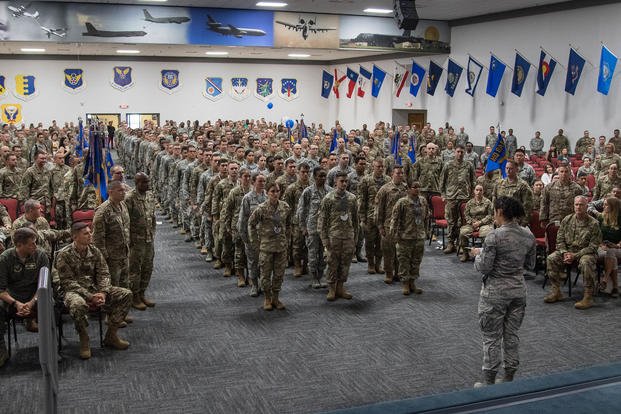

Air Force Weather Officers perform, manage and direct weather operations. Weather forecasting plays an integral part in the success and safety of our missions. Weather Officer Weather can be our greatest ally or strongest adversary. Air Force chemists apply their expertise to fuels, materiel, biotechnology, bio-optics, hyperspectral research and much more. Air Force physicists use their knowledge in areas such as lasers, nuclear engineering and optics. Scientist The breakthrough discoveries produced in the lab make our missions faster, safer and more effective. Also responsible for supporting deployed communications operations, they can be sent anywhere in the world at any time to serve Air Force, joint and allied missions. They also plan, develop and maintain architectures and standards across air, space and cyberspace. Cyberspace Operation Officers possess a wide range of expertise from computerized, satellite and airborne communications to postal operations, tracking systems and weather equipment. INTEREST: SCIENCESĬyberspace Operations Officer With today’s technology, information and communications can be optimized like never before, and timely information alone can make or break a mission’s success. They develop plans and operational procedures for communication about aircraft and missile accidents, natural disasters, environmental incidents and other newsworthy events concerning Air Force activities. Public Affairs Officer Public Affairs Officers use their diplomatic expertise to educate the public while safeguarding the details of our endeavors from foreign threats. They develop plans and policies for personnel, education, training and functional responsibilities.
#Air force enlisted jobs professional
Personnel and Manpower Officer Personnel and Manpower Officers continually focus on assessing staffing needs–they handle everything from procurement and assignments to professional development, promotions and separations. These officers organize and strategize recovery missions, train and equip rescue personnel and manage and develop survival skills programs. Alone and immobile, the injured are often extremely vulnerable and need a swift, effective rescue evacuation. For over a decade, the Health Professions Advisory Committee has overseen the application process of cadets into military health career fields.Ĭombat Rescue Officer Some of the most courageous Airmen are those dedicated to the rescue and recovery of injured servicemen from the front lines. In 1997, dental and nursing schools became available for cadets. Military Health Career Fields USAFA has sent cadets directly to medical school since 1962. Developmental Engineers may be called to work on projects anywhere in the world. They develop engineering processes and subprocesses, formulate engineering policy and procedures and direct technical operations. A Civil Engineer can be flown anywhere in the world to assess damage, perform emergency repairs, advise commanders on emergency response and train personnel in a wide range of disaster preparedness.ĭevelopmental Engineer Developmental Engineers are some of the best in the world, with specialties ranging from aeronautical and astronautical to electrical and mechanical engineering. INTEREST: ENGINEERINGĬivil Engineer There are literally thousands of Air Force buildings, structures and utilities around the world, and it’s the job of Air Force Civil Engineers to ensure they’re not only maintained but combat ready.
#Air force enlisted jobs full
For a full listing, explore Air Force Careers.


 0 kommentar(er)
0 kommentar(er)
